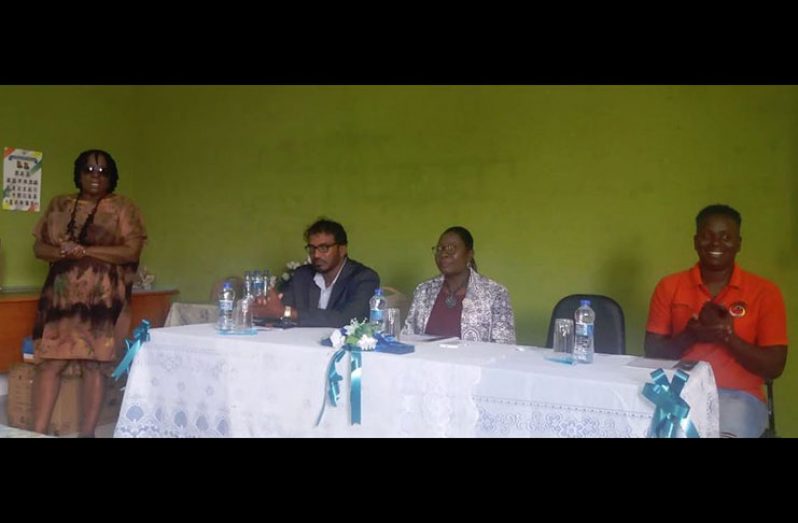SCIENCE, Technology, Engineering, and Math (STEM) clubs were launched in Region Three recently, enabling 28 schools to participate in the exciting and educational robotics projects.
This was as a result of the collaboration between the Region Three Chambers of Commerce and Industry (R3CCI), the Department of Education Region Three and STEM Guyana.
These schools include 13 secondary and 15 primary schools. Students will have the ability to hone their skills and learn the basics principles of STEM.
This will be applied to the work of building robots in a fun environment.
General Secretary of the chambers, Dennis Mayers, said STEM clubs are a powerful and enjoyable way to engage children with science, mathematics and technology subjects, as they provide a platform to expand their horizon.
He said the R3CCI believes that the STEM Guyana programme allows all involved to explore STEM subjects in innovative and inventive ways outside the curriculum and is pleased to support such a programme since it was responsive to the developmental needs of the country, especially as it relates to education delivery and the curriculum.
The clubs are expected to provide STEM learning experiences through hands-on, knowledge-based projects guided by highly-skilled facilitators.
The STEM clubs will facilitate practical learning and application of cross-cutting concepts helping to develop higher level learning and problem-solving skills.
R3CCI President, Halim Khan, said while the economic benefits of STEM education for the country are notable, “it’s important that parents realise that STEM education has individual and specific benefits for their children, even in the primary and intermediate grades.”
He explained that STEM education builds and encourages problem-solving skills.
“In STEM activities, students learn how to analyse problems and then work to correct and overcome them. STEM education instills creativity. In our world of innovation, creativity is the fuel for new technologies and ideas. Creativity allows students to see problems in new ways and to think outside of the box,” Khan explained.



.jpg)








